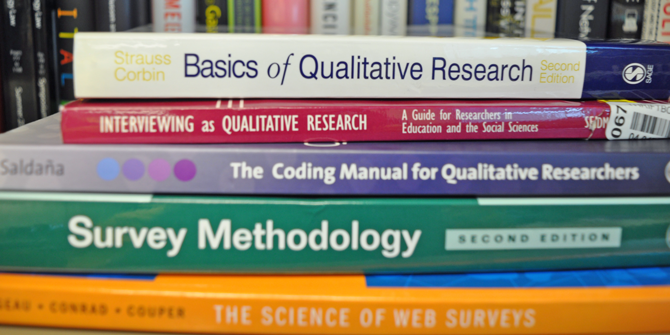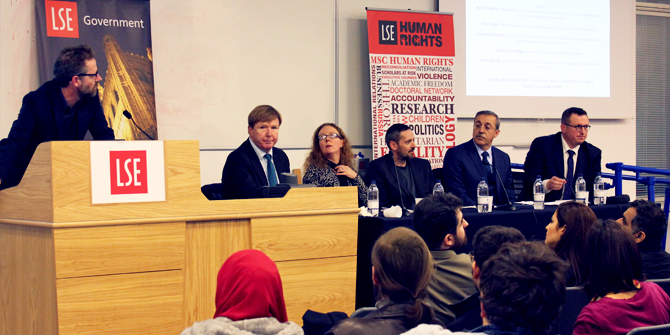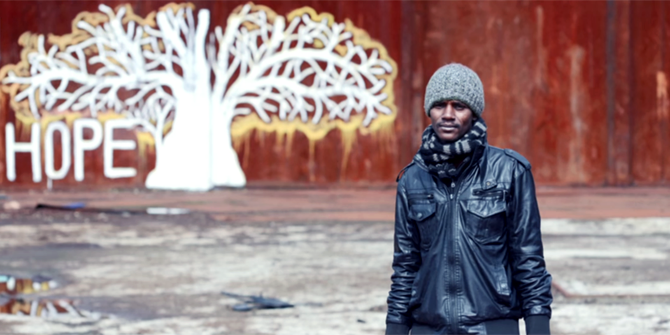
In 2015, Dr Denisa Kostovicova was awarded a Leverhulme Research Fellowship that has allowed her to study the merits and limitations of a regional approach to transitional justice in the Balkans. In this third blog in the series, Dr Kostovicova addresses the issue of how a researcher’s history and persona shapes research, and how research methods can mitigate the effect.
Serious Business
Most rigorous political scientists will tell you that we are in a serious business. Our work is all about validity, reliability and replicability. Doing research is science, the opposite from writing stories. But, surely, there must be a story somewhere, behind even the most rigorous research project.
I’ve always enjoyed reading about the creative writing process, especially when novelists and playwrights reveal why they write about what they write. Intriguingly, they often say that they do not have to actively look for their subject. It comes to them itself.
I have wondered if this is the case with academics, too. Why am I interested in post-conflict reconstruction and transitional justice, and not so much in party competition?
The answer – it seems to me — lies in who the person is behind the researcher, which is why we need to pay particular attention to methods to mitigate the personal effect.
My Journey into Politics
I studied languages and linguistics as an undergraduate. My study of politics began relatively late, and, paradoxically, only after I lived the ultimate consequences of bad politics – death and destruction in the wars of Yugoslavia’s dissolution in the 1990s. I dropped out of a graduate sociolinguistics course, and took up writing as a journalist against the madness. Nothing else made sense.
When I returned to academic study, politics replaced linguistics. My encounter with politics as an academic subject, rather than as a lived experience, could not have been more privileged.
I learnt about nationalism from Ernest Gellner, one of the twentieth century’s intellectual giants and preeminent thinkers of nationalism, who had returned to Prague from the UK to teach at the Central European University (CEU).
There was something electrifying about the exchanges Gellner had with other prominent theorists visiting the CEU, as they argued how their theories held up against a new kind of post-Cold War nationalism. In the audience – we were students from former Yugoslavia and former Soviet Union, whose geographies this new destructive force had changed for ever.
To this day, my thinking is profoundly influenced by Gellner’s constructivist approach to nations and nationalism. But, what I also took from those debates is how much intellectual endeavour is intertwined with personal stories. John A. Hall writes insightfully how Gellner’s background as a Jew growing up in Bohemia and witnessing the Czech and German nationalism, shaped his thinking.[1]
My own much, much more modest contribution and my current research project are also inseparable from my experience of war in former Yugoslavia. This personal stake no doubt heightens my emotional investment in research, fuelling my drive to delve into post-conflict justice. Yet, it also creates a number of pitfalls well known to qualitative researchers.
Positionality
Positionality, qualitative methods textbooks say, has to do with an awareness of the impact of a person of a researcher on the research process. The researcher’s identity will affect consequentially both interaction with research subjects and data collection.
We therefore need reflexivity, which is about continual re-examination of the research process in relation to the researcher’s position. It aids a researcher in identifying and tackling any sources of bias which may undermine the validity of research.
I too have grappled with my positionality while doing field research. Instead of helping, profound and honest reflexivity about my research has led me down a blind alley.
‘Are you ours?’
While researchers can strive to attain objectivity in relation to the research subject, this is much harder when it comes to research subjects.
The question I am asked over and over again in the field is, ‘Are you ours?’
I share my first name with Muslim women in the Balkans. The name (deniz is the sea in Turkish) links up with the region’s Ottoman heritage. I like the (recently discovered) local resonance of my name, although my parents had a French version of Denise in mind. Being half-Serb, my Serbian accent aligns me distinctly with the Serbian side. It is a laden connection, given the role of Serbian nationalism in the Balkan wars and destruction throughout the 1990s. And, my unpronounceable last name puts me outside the region, in Central Europe, precisely, former Czechoslovakia where I was born (being quarter Czech and quarter Slovak on that side).
My background shapes my positionality when I research the legacy of mass atrocity in the Balkans.
I notice an almost imperceptible change of tone when interviewees realise some sort of connection. They lean closer, and say, “You, know, we Serbs…” They assume I will understand them at a different, more intimate level so to speak, just because I am (half-) Serb. Elsewhere, I notice contrary dynamics. I register a bit of suspicion, or hesitation, perhaps, about what could be said to someone – however well-intentioned – coming from the other side of the ethnic divide. On other occasions, my semi-outsider status helps me establish rapport.
Of course, the issue of positionality is much more complicated as other identities of me as a woman, a mother, or a wife, also impact the research process. But, it would be naïve to dismiss the salience and effect of a researcher’s ethnicity — especially when researching war crimes.
What do methods have to do with it?
I find that reflexivity, which should take care of biases, does exactly the opposite in my research. The more interviews and focus groups I do, the more I am sure that my persona as a researcher profoundly interferes with my ability to produce rigorous analysis. I can control who I interview (say, victims or civil society activists), but will the data be comparable given the effect of my positionality on data generation?
In my case, the challenge is not easily overcome by remaining within the confines of qualitative methodology.
That is why in this research project, I also embrace quantitative methodology (specifically, three different quantitative methods).
It is not a well-trodden path in the field of transitional justice studies. The field is open to multiple methods, but they are seldom combined. The battle lines between quantitative and qualitative methods have been drawn. They are not crossed, and little meaningful dialogue takes place – to the mutual detriment of both camps. Yet, as Kirstin Ainley argues, applying mixed methods is critical for taking this field of study forward in two ways: for improving our evaluation of the effects of transitional justice, and for aiding the design of transitional justice policies.[2]
As for me personally, I need numbers, although not merely as fool-proof scientific evidence for my findings. I need numbers as a way to write myself out of the research process, separating researcher from research. It is only then that I can allow myself to bring in amazing qualitative insights from the field. This time, however, I do this to reinforce my findings, and — if at all possible – to show that science and stories can live together, even in the most rigorous research.
 Dr Denisa Kostovicova is an Associate Professor in Global Politics in the Department of Government at the LSE. You can find out more about Dr Kostovicova’s research on our website. Further information on Leverhulme Research Fellowships can be found on the the Leverhulme Trust website.
Dr Denisa Kostovicova is an Associate Professor in Global Politics in the Department of Government at the LSE. You can find out more about Dr Kostovicova’s research on our website. Further information on Leverhulme Research Fellowships can be found on the the Leverhulme Trust website.
Note: this article gives the views of the author, and not the position of the Department of Government, nor of the London School of Economics.
[1] John A. Hall, Ernest Gellner: An Intellectual Biography (London: Verso, 2010)
[2] Kirsten Ainley (2015), ‘Evaluating the Success of Transitional Justice in Sierra Leone and Beyond’. In Evaluating Transitional Justice, edited by Kirsten Ainley, Rebekka Friedman and Chris Mahony (Basingstoke: Palgrave Macmillan).





